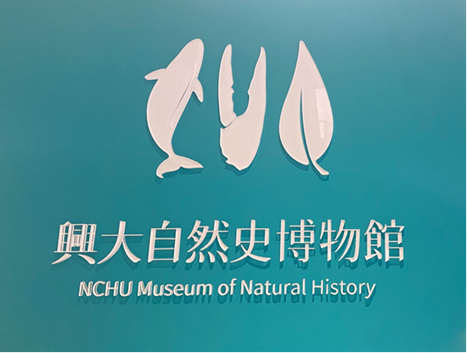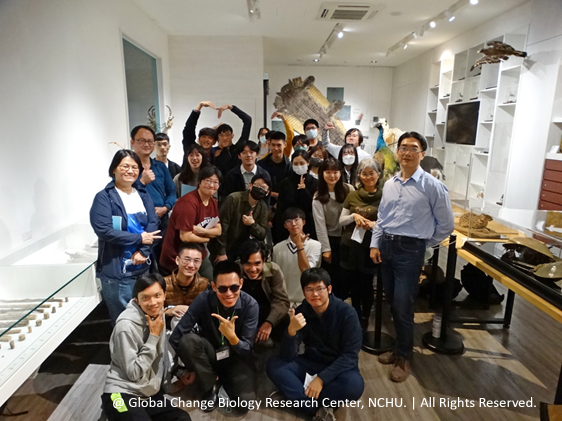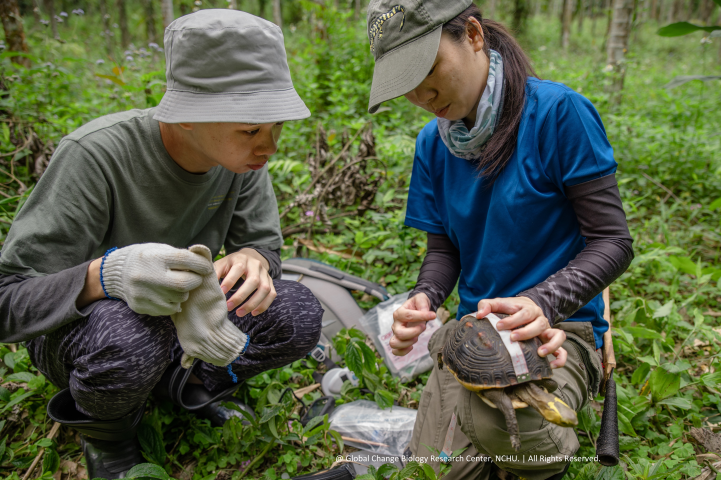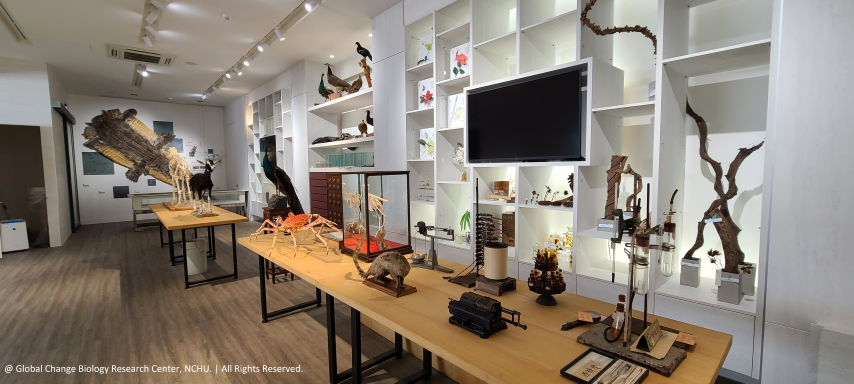Source: Hsi-Te Shih, Chief Director, Global Change Biology Research Center, NCHU Ming-Feng Chuang, Deputy Director, Global Change Biology Research Center, NCHU Yu-Hsi Wang, Research Assistant, Global Change Biology Research Center, NCHU
Pioneering Global Change Research: NCHU's GCBRC Leads Biodiversity and Sustainability Studies
Established in 2013, the Global Change Biology Research Center (GCBRC) at NCHU has emerged as a crucial research hub integrating resources across disciplines. The center investigates global change impacts on biodiversity and ecosystems while developing proactive response strategies. Through interdisciplinary research, sustainable development solutions, and professional development, GCBRC advances our understanding of environmental changes and challenges.

►The Museum of Natural History was established in July 2022 after three years of preparation.
Core Mission and Research Focus
GCBRC conducts comprehensive research spanning disaster prevention and mitigation, food security, emerging energy sources, and socioeconomic impacts of environmental change. The center’s research portfolio includes biological resources surveys, endangered species monitoring, and ecosystem response studies. By integrating these diverse research areas, GCBRC develops holistic approaches to environmental challenges.

►The GCBRC offers the course "Museums and Biodiversity, utilizing the Natural History Museum as a teaching platform.
Educational Initiatives and International Collaboration
The center enhances environmental education through specialized courses like "Museums and Biodiversity," fostering deeper understanding of biodiversity and conservation issues. GCBRC’s international research network includes partnerships with institutions across Asia—Republic of Korea, Japan, Vietnam, Singapore, the Philippines, and Indonesia— resulting in numerous collaborative publication advancing our understanding of global change impacts on biodiversity and ecosystems.

►The GCBRC conducts tracking research on the endangered Yellow-margined Box Turtle.
The Museum of Natural History of NCHU: A Crowning Achievement
One of the GCBRC's significant achievements in recent years has been its assistance in planning and managing the Museum of Natural History. The museum, which opened in July 2022, serves as a prominent attraction to the campus and a vital platform for showcasing biodiversity and ecological conservation. The museum's exhibits include animal and plant specimens collected by faculty and students of the Department of Life Sciences over sixty years, bird specimens co-exhibited with the Taiwan Biodiversity Research Institute, and precious specimens donated by alumni of the Department of Life Sciences and private specimen collectors. The collection encompasses representative specimens of organisms from both land and sea, such as dinosaur embryo fossils, giant squid, giant spider crab, and the trunk of the elephant Malan.

►The Museum of Natural History showcases representative biological specimens, serving as an excellent platform for biology education and public outreach.
Future Outlook
The Museum of Natural History's establishment represents a tangible accomplishment of the GCBRC's efforts in promoting environmental sustainability and a significant manifestation of fulfilling the university's social responsibility. It disseminates knowledge about biodiversity to the public, raising awareness of ecological conservation. Moving forward, the GCBRC will continue its dedication to research, education, and outreach, contributing to the protection of our planet's sustainable future.


